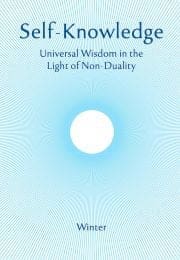On the Advaita of Shri Shankara
Based on an extract from an essay by Hari Prasad Shastri entitled ‘An Outline of the Advaita of Shri Shankara Acharya’
Limitations are a darkness and obstruct the vision of Truth. They make Reality appear what it is not; where there is bliss they paint a picture of distress, pain, sorrow and disappointment. Our mind is a limitation and so are the senses and their objects. Like the deer in a sandy desert, which runs after the mirage river to quench its thirst and eventually falls fatigued and unsatisfied, the soul of man, which looks for inner peace (Shanti) in the transient pleasures and achievements of the outer world, eventually falls fatigued, suffers and views life as bitter in so many respects.
But there is a way to freedom, independence and bliss for which the soul is searching, and it is the realisation of non-duality (Advaita)—the intrinsic identity of our innermost Self with the universal Self. This is the teaching revealed in the ancient scriptures of the Upanishads and commented on by Shri Shankara.
It is not a person of keen intellect who can know of itself the truth of this identity, but the one who has acquired tranquillity and equimindedness, who is magnanimous and infinite in compassion and forgiveness. To such a one the Truth reveals itself.
Let us discuss the nature of Advaita. We say that the expression ‘There is no other existence apart from the existence of Self (Atman)’ (Chandogya Upanishad 7.25.2) shows that there is nothing separate from Atman. In this sense the Self is one without a second. It does not mean that any existence imagined as other than Atman is necessarily non-existent. But it means that any object thus imagined is inseparable from and the same in essence as Atman. It is clear therefore that anything other than Atman exists merely in imagination and not in reality.
If we consider the words ‘Atman’ and ‘Brahman’ in this sense, the meaning of Advaita will be clear to us. ‘Atman’ is an eternal principle and the subjective aspect of ultimate Reality. It is an indivisible principle of non-duality and there is no possibility of any difference in it at all. The word ‘Brahman’ denotes the external objective reality of the same principle. In it there is a unity of the inner and the outer, the subjective and the objective. In one sense it is clear that ‘Atman’ also means both the subjective and the objective ultimate Reality.
The conception of the nature of Brahman resembles the European theory of the Absolute; yet there is a great difference between the two. Brahman, according to Vedanta, is a spiritual Reality and Truth; the Absolute of western thinkers is based on logic and hypothesis. The philosopher, F H Bradley, in his book Appearance and Reality, has tried to prove that what is logical is real, but in Vedanta his thesis is not fully acceptable. Bradley postulates only the possibility and not the certainty of the Absolute.
When western philosophers deny the reality of appearances, it is also put forward as a logical conception; the metaphysical reality to Bradley is the logical whole. Shri Shankara lays more emphasis on experience than on logic—an experience that is revealed to the tranquil mind fired with the longing for liberation. He shows that the one indivisible transcendent Self is the support of the universe. This partless and indivisible Self (Atman) is the same as the all-pervasive existence called Brahman. It is not an element abiding in Brahman but it is the very nature of the innermost reality called Brahman. The world can be called in a certain sense an aspect or a part of Brahman because it is distinguishable from Brahman, but when we consider it in the sense that it is supported on Brahman and is not different from It, we cannot call it a fraction of Brahman.
The world is a distinguishable existence but it is not a reality distinct from Brahman. Though by nature it has an existence, nevertheless its reality depends on the indistinguishable inseparable Self aspect of Brahman. The followers of Shri Shankara, the great Acharya, have enlarged most learnedly and profoundly on this aspect of the philosophy of Advaita and have explained the real meaning of experience on these lines.


